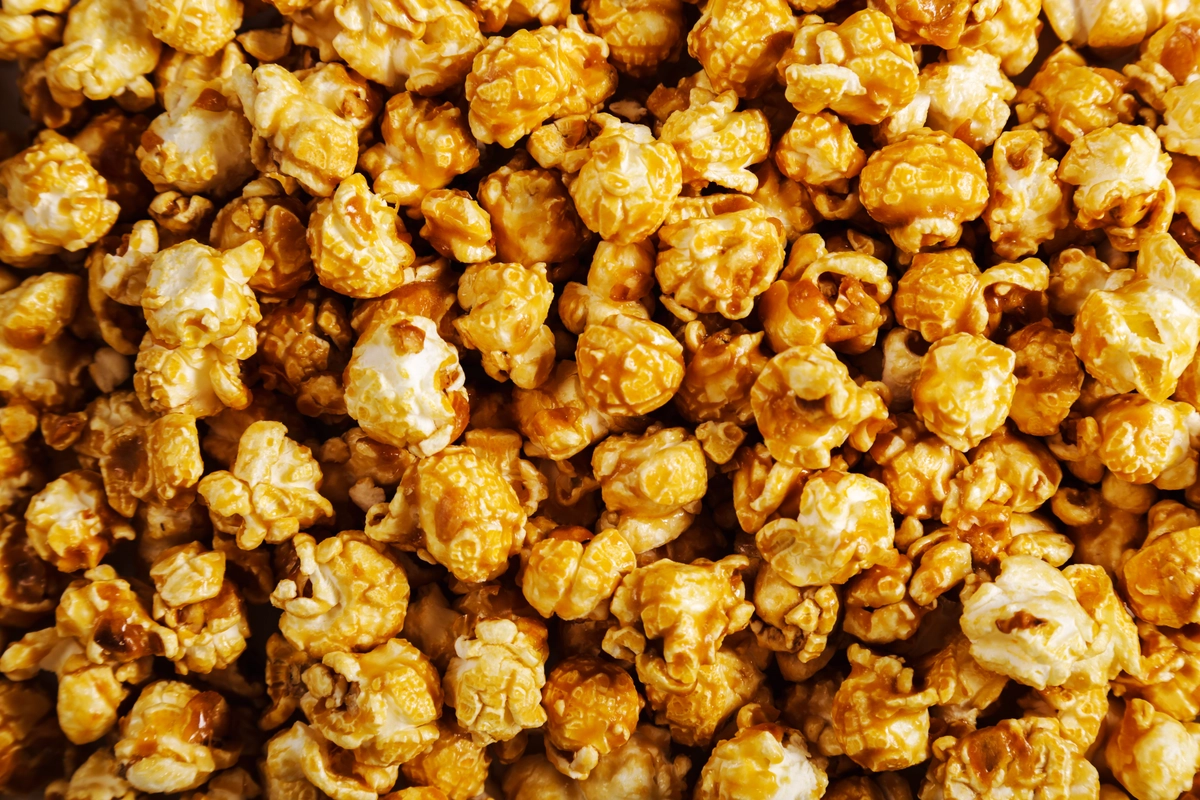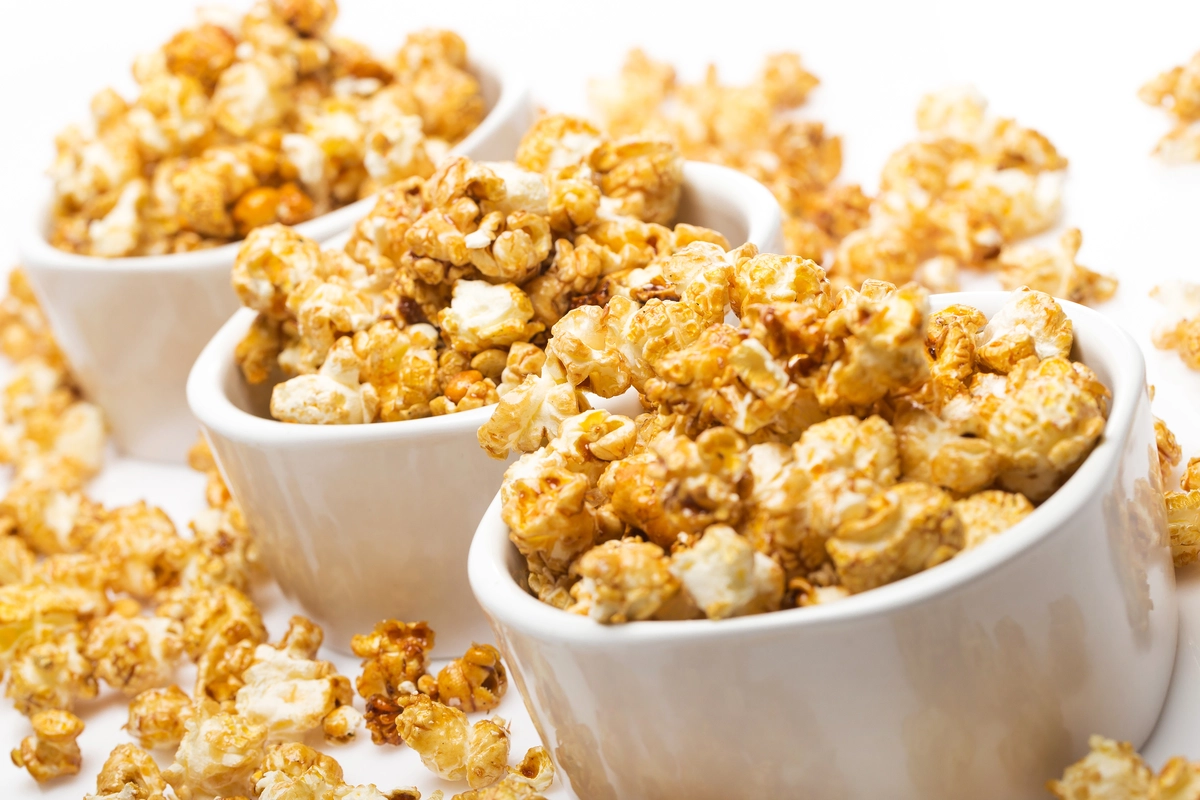
Introduction to Gluten and Gluten-Free Diets
With the rise of gluten-related health concerns, many people are choosing to adopt a gluten-free diet. Gluten is a protein found in wheat, barley, and rye, and for those with celiac disease or gluten sensitivity, consuming gluten can cause serious health issues. Therefore, it’s essential to know which foods are safe to eat. One popular snack that often raises questions is popcorn. So, is popcorn gluten-free? According to various sources, including Healthline, it is indeed naturally gluten-free, making it a safe choice for those avoiding gluten.
What is Popcorn?
Popcorn is a type of corn that pops when heated, thanks to the moisture inside its kernels. The moisture turns to steam, causing the kernels to burst open and create the fluffy snack we all love. Popcorn can be made in various ways, including microwave, air-popping, and stovetop popping. All these methods start with corn, which does not contain gluten, making plain popcorn a naturally gluten-free food. To enjoy other gluten-free options, you might explore the range of gluten-free dinner recipes that can complement a healthy diet.
Is Plain Popcorn Naturally Gluten-Free?
Yes, plain popcorn is naturally gluten-free. Corn, the primary ingredient in pops, is a gluten-free grain, which means plain, unflavored popsdoes not contain gluten. This makes it safe for those with celiac disease or gluten sensitivity. According to Good Housekeeping, popcorn can be an excellent addition to a gluten-free diet, as long as no gluten-containing ingredients are added during preparation.
When Can Popcorn Become Contaminated with Gluten?
While plain popcorn is naturally gluten-free, there are situations where it can become contaminated with gluten:
- Flavorings and Additives: Some pops brands add flavorings or seasonings that may contain gluten. Common examples include cheese powders, caramel coatings, or spice mixes.
- Cross-Contamination: Pops processed in facilities that handle gluten-containing products may be at risk of cross-contamination. This means gluten can inadvertently get into popcorn during manufacturing.
- Pre-Packaged Pops: Always check the labels on pre-packaged popcorn to ensure it is labeled as gluten-free and certified by reputable organizations. Look for brands that clearly state their gluten-free status. Additionally, homemade snacks like those found in these low-carb ground beef recipes are excellent alternatives to store-bought options, ensuring better control over ingredients.
Popular Gluten-Free Popcorn Brands
If you’re following a gluten-free diet, it’s important to choose brands that explicitly state their products are gluten-free. Some well-known brands offering gluten-free popcorn options include:
- Orville Redenbacher: This brand offers a variety of popcorn flavors that are certified gluten-free, making it a safe option for celiacs.
- Boomchickapop: Known for its simple ingredient list, Boomchickapop is another brand that caters to gluten-free consumers.
- SkinnyPop: SkinnyPop is a popular choice for those looking for light, gluten-free popcorn snacks.
The Case of Movie Theater Popcorn
One common question is whether movie theater popcorn is gluten-free. The answer can vary depending on the theater:
- Some theaters, like AMC, have confirmed that their popcorn is gluten-free. However, cross-contamination can still occur if theaters use shared equipment or add gluten-containing seasonings. It’s always best to check with the specific theater before indulging. Alternatively, making your popcorn at home or exploring other low-carb air fryer recipes can offer safe and delicious snack options.

Homemade vs. Store-Bought Popcorn
Making popcorn at home is the best way to ensure it remains gluten-free. Here are some tips:
- Control Over Ingredients: By making popcorn at home, you can control what goes into it, ensuring no gluten-containing additives are used.
- Use Gluten-Free Seasonings: Opt for seasonings like salt, pepper, and herbs or use products labeled as gluten-free.
- Avoid Cross-Contamination: Use a clean, designated popcorn popper or pan that has not been used to prepare gluten-containing foods.
Store-bought popcorn can be convenient, but it requires careful label reading to confirm it is gluten-free. Choose brands that are certified gluten-free to minimize the risk of contamination.
Health Benefits of Eating Popcorn
Popcorn is not only a delicious snack but also comes with several health benefits, making it a great choice for those on a gluten-free diet:
- High in Fiber: Popcorn is a whole grain, providing a good amount of dietary fiber that aids in digestion and promotes a feeling of fullness.
- Low in Calories: When prepared without excessive butter or oil, popcorn is a low-calorie snack.
- Rich in Antioxidants: Popcorn contains polyphenols, antioxidants that help fight free radicals in the body.
For more ideas on incorporating healthy snacks into your diet, consider these healthy low-carb slow cooker recipes for weight loss.
Popcorn Recipes and Flavoring Ideas for a Gluten-Free Diet
There are countless ways to enjoy popcorn while keeping it gluten-free. Here are some ideas:
- Classic Sea Salt: Lightly salt air-popped popcorn for a simple, satisfying snack.
- Herbed Butter: Melt butter and mix in fresh or dried herbs like rosemary, thyme, and oregano. Drizzle over warm popcorn.
- Cinnamon Sugar: Combine cinnamon and a small amount of sugar for a sweet treat.
- Nutritional Yeast: For a cheesy flavor without the cheese, sprinkle nutritional yeast over your popcorn.
How to Ensure Your Popcorn is Truly Gluten-Free
To maintain the gluten-free integrity of your popcorn, follow these tips:
- Read Labels: Always read the ingredient list on packaged popcorn. Look for “gluten-free” certifications.
- Use Separate Equipment: If preparing popcorn at home, use equipment dedicated to gluten-free food preparation.
- Buy Certified Gluten-Free: Choose brands and products that are certified gluten-free to minimize the risk of cross-contamination.
Common Myths About Popcorn and Gluten
Several myths surround popcorn and gluten. Let’s clarify a few:
- All Corn is Gluten-Free: While corn is naturally gluten-free, contamination can occur during processing, so vigilance is necessary.
- Popcorn Flavors Always Contain Gluten: Not always. Many brands offer gluten-free flavors, but it’s essential to check the packaging.
- Popcorn is Unsafe for Celiacs: Incorrect. Plain popcorn is safe, but added ingredients require caution.
Alternatives to Popcorn for Gluten-Free Snackers
For those looking to diversify their snack options, here are some gluten-free alternatives to popcorn:
- Rice Cakes: Light and crunchy, rice cakes come in various flavors.
- Veggie Chips: Made from a variety of vegetables, these chips offer different textures and flavors.
- Nuts and Seeds: A protein-rich, gluten-free option that is easy to snack on.
FAQs: Is Popcorn Gluten-Free?
- Is flavored popcorn gluten-free?
Not always. It depends on the flavorings and ingredients used. - Can celiacs eat popcorn?
Yes, plain popcorn is safe for celiacs, but flavored varieties require careful checking. - Does movie theater pops contain gluten?
It varies by theater. Check with the specific theater or opt for bringing your own popcorn. - What should I look for on pops labels?
Look for “gluten-free” certifications and avoid products with added gluten-containing ingredients. - Is air-popped pops healthier for a gluten-free diet?
Yes, air-popped popcorn is a low-calorie, high-fiber option that is naturally gluten-free.
Conclusion
Popcorn is a versatile and delicious snack that can easily fit into a gluten-free diet. By understanding how to prepare it safely and choosing the right products, you can enjoy this popular snack without worry. Whether you’re making it at home or buying it pre-packaged, always be vigilant about checking for gluten-free labeling and avoid cross-contamination. With these precautions, you can confidently enjoy your popcorn and maintain a healthy, gluten-free lifestyle.